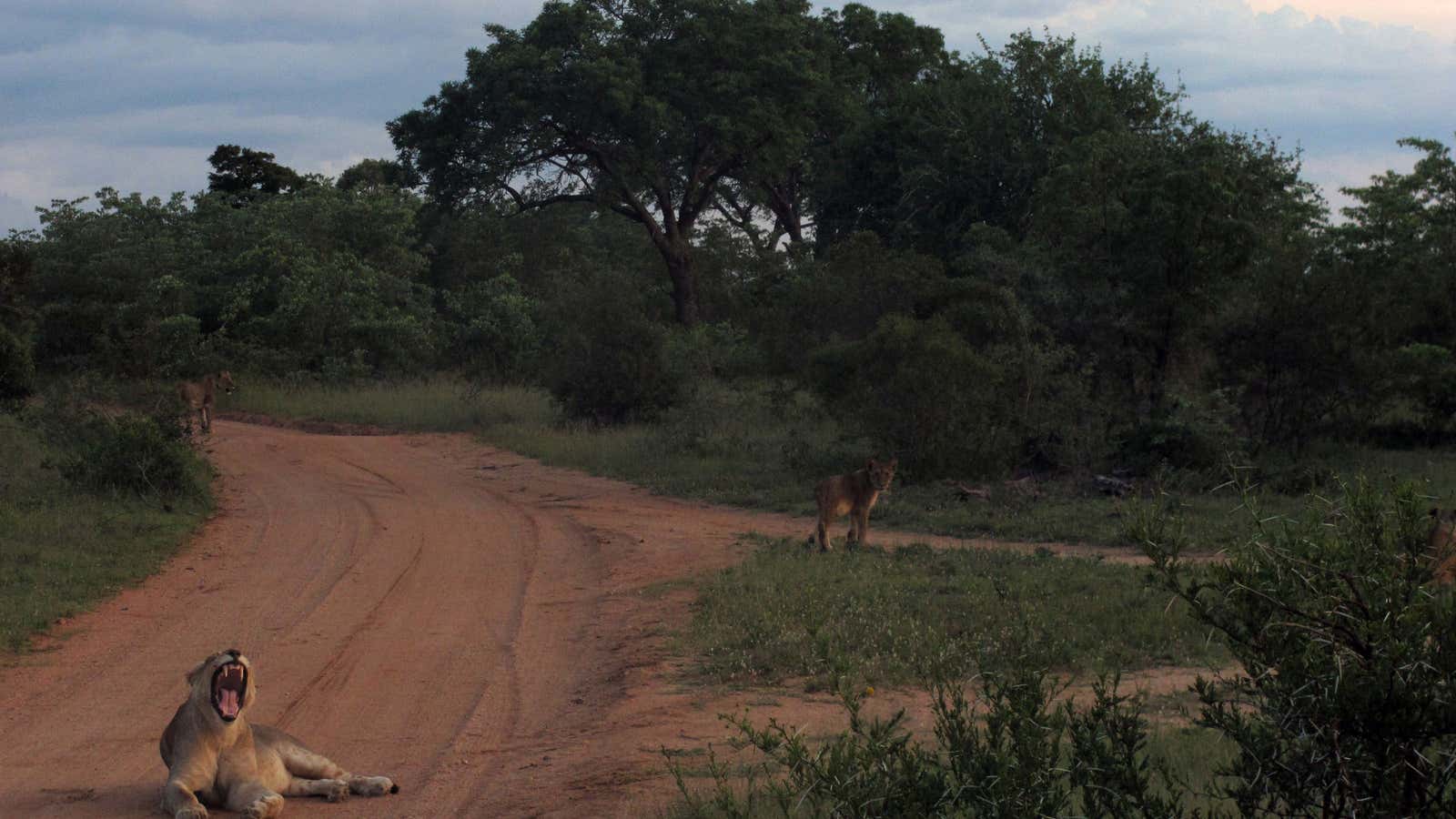A pride of lions that mauled a suspected poacher left his head for investigators, but it’s still unclear who he was, or if he was a poacher at all.
According to local news, the man’s remains were discovered on Friday near South Africa’s Kruger National Park in Limpopo province. An African correspondent for German news agency dpa reported that the man was mauled so badly that the police are still unable to identify him.
Initially, police suspected he was a local tractor driver who had been reported missing. But that man has since been found alive, leading to the poacher theory.
Various clues support that theory. He was found next to a loaded hunting rifle and ammunition. He was found in an area known for poaching, and was not carrying a permit on him. Shots were fired in what appears to be an attempt to distract the lions after the man screamed, but it was too late, a local source said.
Lion poaching in and around the Kruger park has reportedly increased in the last few years, due to big profits in the trade of lion body parts for medicinal use in Asia. Last July, several lions were found poisoned near a farm in the same province with their paws and heads removed, a few months after another group of lions were killed for their body parts in Polokwane, capital of the province. The Kruger park is one of Africa’s largest game reserves, home to lions, leopards, rhinos, elephants, and buffalos.
Many on social media are lauding last Friday’s incident as the perfect “karma.” Animal poaching has been denigrated on social media periodically in the last few years, most famously in 2015 when the trophy killing of Cecil the lion in Zimbabwe by a dentist from Minnesota sparked massive outrage, culminating in PETA calling for the hanging of the hunter.
The African lion population has decreased 43% in the last 21 years, and lions are extinct in seven African countries. Americans are particularly keen on hunting lions for trophies; at legal facilities in South Africa, about 90% of such killings are done by U.S. citizens, according to a 2016 report. Between 2005 and 2014, most of the African lion trophies came to the US from South Africa.
